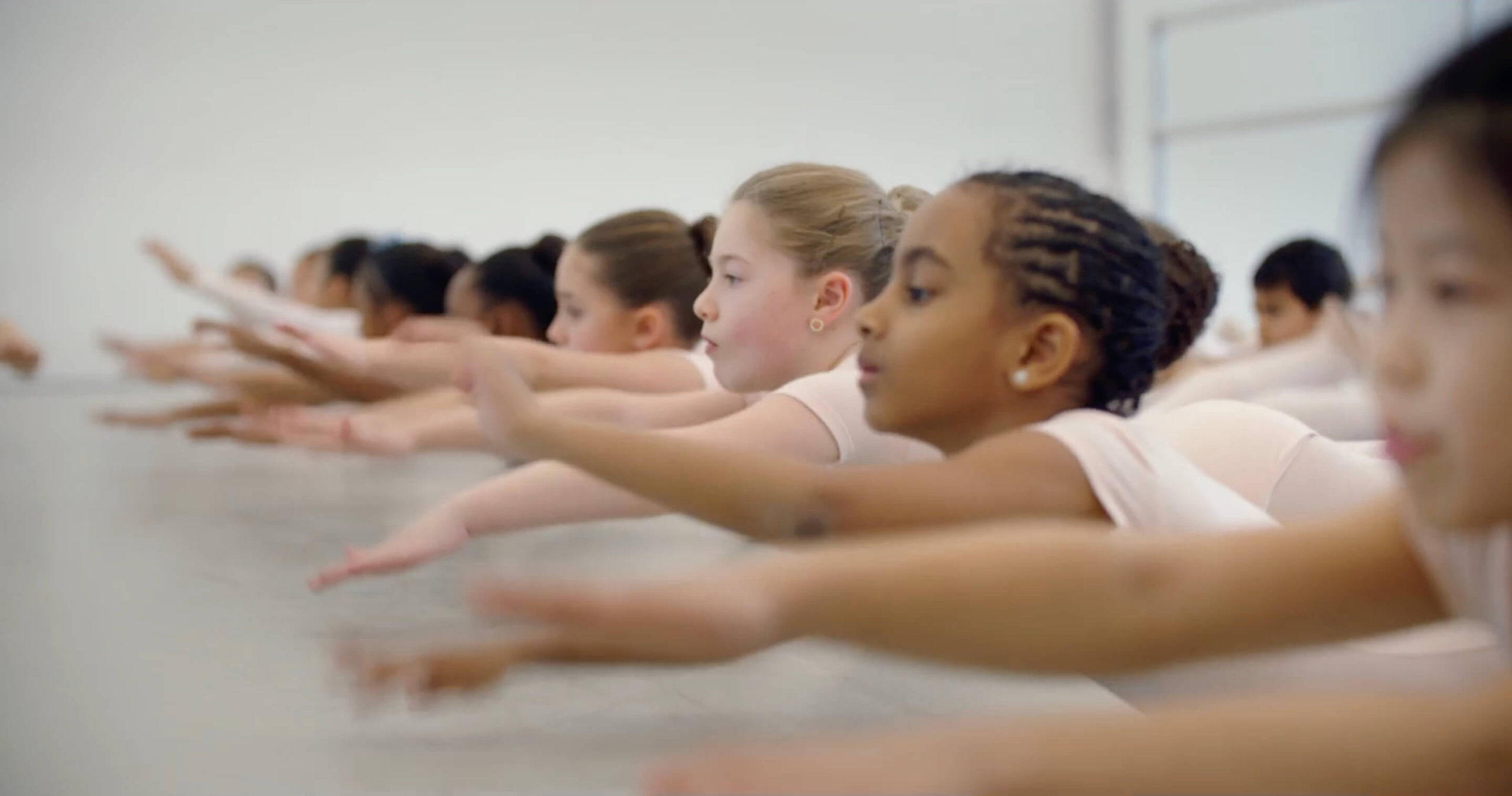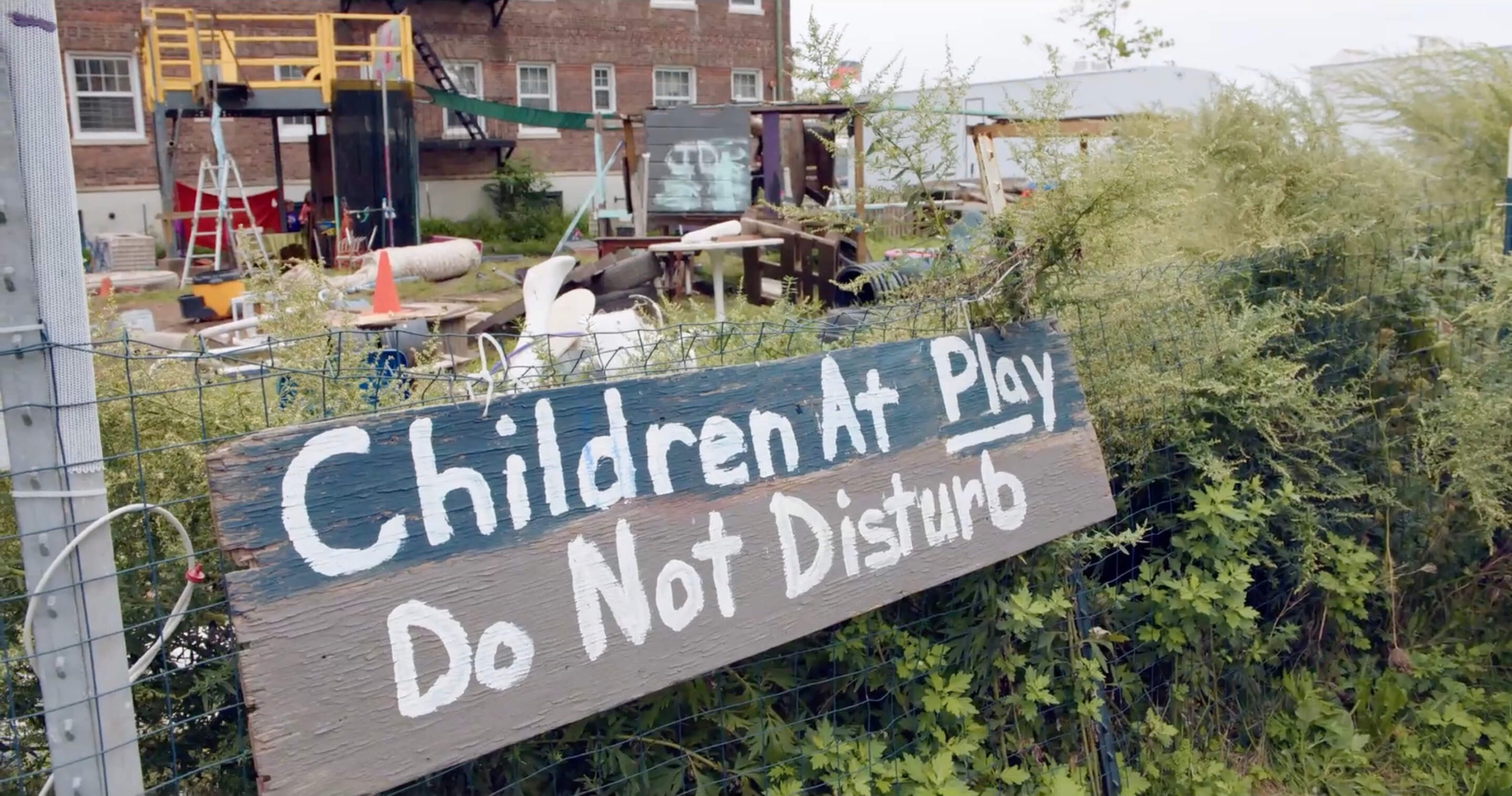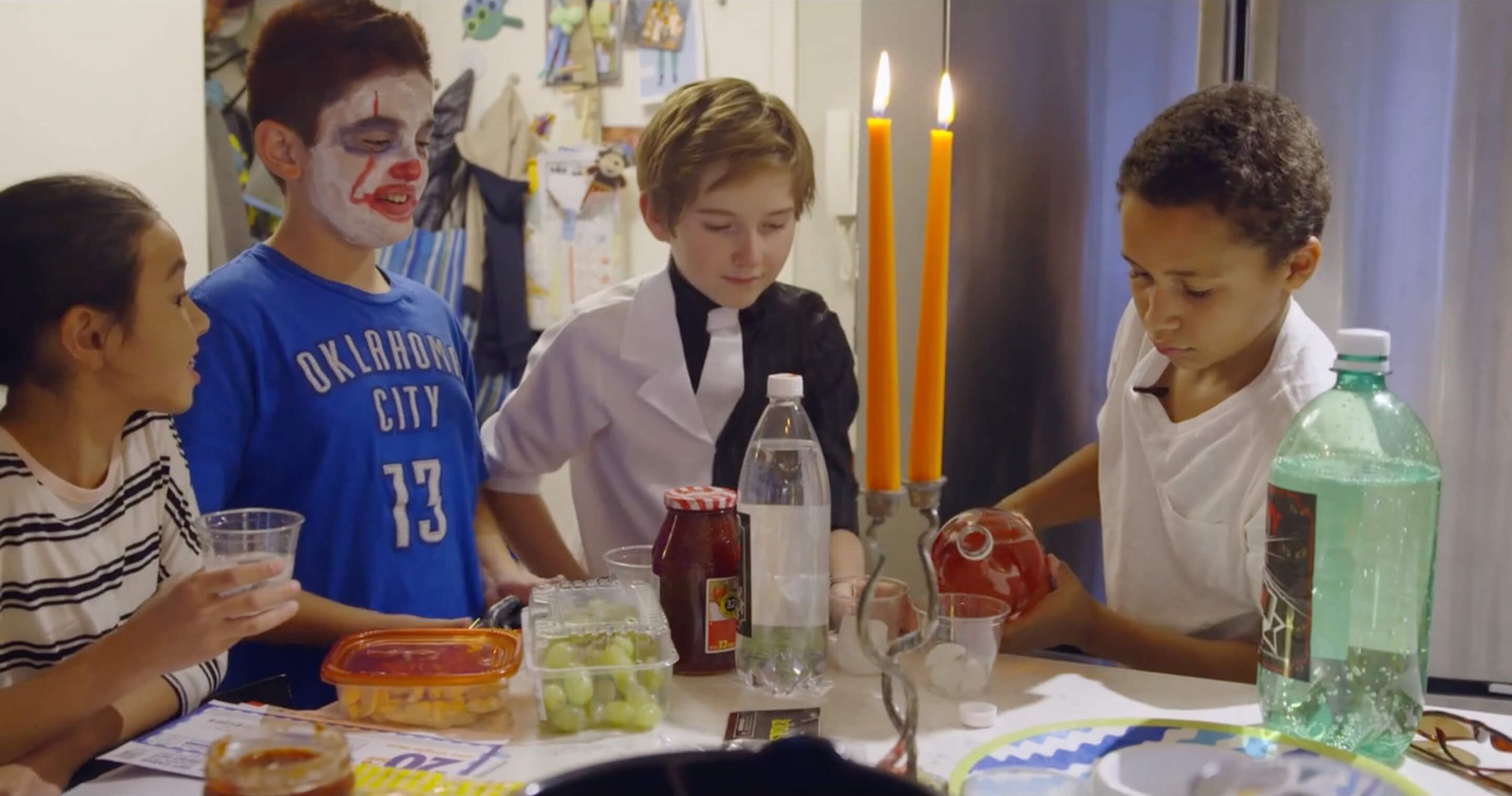The New York Margaret Munzer Loeb and Eden Wurmfeld grew up in was very different from the one their kids know: more crime and less technology, greater danger and fewer options for parental surveillance. Yet they had a freedom — to move around the city, to hang out with friends, to play — that their children, like so many in America, might find inconceivable. Today, kids’ lives are overscheduled and overly proscribed, with each day dedicated to a sport or extracurricular activity. And that’s on top of the demands of school, which have intensified as families compete for spots at highly selective universities. The result is a generation of young people who display signs of burnout in kindergarten, struggle with addiction and self-harm in high school, and are unable to cope once they’re on their own.
“Eden and I were nostalgically looking back at our own childhood and simultaneously talking about parenting, kind of like, ‘Wait, we’re parenting differently than the way we were raised,’” Munzer Loeb says. That realization led the friends and veteran filmmakers to investigate this radical shift in how kids experience the world — and what parents can do to better support their children’s development — in Chasing Childhood, an excellent and challenging documentary currently on the festival circuit. (It will be part of the Harlem International Film Festival, running May 6-9.)
The hyperproffesionaliztion of adolescence is too large for any one film to handle. But over the course of 80 minutes, Munzer Loeb and Wurmfeld tug on enough threads to get viewers talking and keep them thinking well after the credits roll. They also introduce us to experts and scientists — like Lenore Skenazy, president of Let Grow and author of Free Range Kids, and Peter Gray, an evolutionary psychologist and author of Free to Learn — working to create a new paradigm, and, crucially, kids, parents, and schools who bravely allow the filmmakers to document their struggles and breakthroughs.
Munzer Loeb and Wurmfeld spoke with the Star-Revue about Chasing Childhood, the ways making the film impacted them as parents, and how the pandemic may have created openings for real change. This interview has been edited and condensed for clarity and length.
What was the genesis of Chasing Childhood?
Margaret Munzer Loeb: When Eden and I were nostalgically looking back at our own childhood and talking about parenting, we were very focused on the kind of autonomy that one could have in a pedestrian city like New York and we have this shared experience, and yet we’re frowned upon if we let our kids, at age 10, for instance, take public transportation, walk to stores. That was the jumping off point that got us into: What happened? What has changed? And is this a New York story? We started it as one but came to the realization that this is so much bigger than just New York and what’s happened here and people’s thoughts about crime in the city. This is a bigger story about parenting.
About a third of the film is set in New York, and the rest takes place in Wilton, Connecticut, and Patchogue, Long Island. How did you come to those two locations?
Eden Wurmfeld: Lenore Skenazy was the first person we interviewed, and we were probing her for where people were also thinking about these issues. She led us both to Patchogue, where she had been doing workshops and had already worked with the school district, and to Wilton. We also knew that Peter Gray had given a talk in the Wilton area. It really impacted the community and they decided to start the Free Play Task Force as a result of having heard Peter speak and realizing they didn’t want to just have that experience of hearing someone speak and feeling like, “Oh, my God, we’re screwing up,” or “Maybe we’re screwing up, but there’s nothing to do about it.” They felt like something really needed to change in their community. On the high school level, they brought in a psychologist who works in schools because they felt, anecdotally, that their kids were not well, but they wanted more data. And the results of the psychologist’s study at Wilton High School were really alarming. In fact, things were not well.
As parents, what did you learn in the course of making Chasing Childhood that surprised you or were unexpected?
MML: One thing I learned — and we had some hunches about it — was this idea of when kids should be able to reach certain milestones in their life was being pushed in the United States. It’s not just anecdotal. that it We had been introduced to some researchers who are not in the film but who emboldened what we were following, which is really that in the United States in particular the milestones kids normally needed to meet — when they tied their shoes, when they started doing chores, when they walked to school — had been very delayed. But one thing stayed the same: when kids turned 18, they’re still expected to go off to college, certainly if they’re from a certain socioeconomic level. So kids are then leaving to go 3,000 miles away, potentially, and they are reaching crisis at a lower threshold than a generation before. I feel like it was eye opening for me. And I continue as a parent to be on this idea of what it means to be aiming for something versus having things that really ground you in the present, like play. I don’t think I valued that before this film and we went on this journey ourselves. When you see your kids out there just making stuff in the yard… Doing this is valuable. It is not just frivolous. And I think society really got us away from that.
EW: I would also say that making this film freed me to give my kids a little more of the kind of experience that many of us had growing up, which was a little less adult supervision, not always an organized activity that someone had sanctioned, but just putting my kids in situations, whether they like them or not. I feel like my parents were basically like, “Unless there’s blood or vomit involved, we don’t want to hear from you,” you know what I mean? Just go do your thing. I feel like my kids could use a little more of that, frankly, where it’s not always on their terms with their friends in situations that they want to be in. I think they gain resilience and they gain these qualities that are essential for being healthy, functional adults. And I think a lot of that has been removed from the culture of childhood in the United States today.
I got a lot of mommy shaming for letting my kids do things at a younger age than was culturally normal. And I realized in the course of making this film I’m not going to be quiet about it anymore. I’m going to say, “Yes, I let my kid do that. He is developmentally ready for it. And I believe it is safe and I think it’s fine and I’d love to engage about it.” Before, I had gone underground. I was trying to hide it because I thought my kids’ friends’ parents wouldn’t let them come over to our house or they would think it would be unsafe or they would think I was a bad parent. So I feel like the research we did and the people we came in contact with ultimately made me feel emboldened.
Does the pandemic change any of the outcomes or takeaways you present in the film?
MML: We’ve struggled at times with, “Has everything changed because now kids are so under-scheduled? Can people relate to this?” and going outside is scary for different reasons. I think one of the things the pandemic has done, and I’ve heard this from educators — I have three kids who did remote school and Eden has two — is that a lot of people don’t want to go back to the way things were. The day is long enough. Maybe kids shouldn’t be in things until 7:30 at night and coming home and then doing homework and then going to sleep. There’s some perspective on that. We want more structure than we have and we want our kids out of that house, but maybe that was too much. For some people, depending on where they are, but I certainly saw this in the park in New York City — I’ve never seen so many kids just playing. It was a mass, but outside is good and so many structured activities were canceled that it allowed for just this organic play. And responsibility. Maybe people weren’t letting their kids go to the store, but the pandemic has been a really long chunk of time and kids started chipping in and doing chores around the house in a way they never did before because, frankly, everyone was home. So I think in some ways, as we ramp back up, I think people are going to be open to having conversations about what this should look like, what’s actually healthy.
EW: I’ve heard more play in the street, with my window open while at my desk, in the last year than I ever have before in my adult life. I find that really a COVID silver lining. And all these streets in the neighborhoods that have been closed off to cars so that kids can play, I really hope a lot of those will carry forward and not be restored to traffic jams but left for kids to make their own fun on without fear of being hit by a car. Frankly that’s always my biggest fear as a parent in New York City, is my kid being hit by a car. It’s not my kid being abducted or anything like that.
How do we as parents ensure that that spirit of free play and autonomy not only remains but is encouraged? How do we ensure it’s seen as normal and not some pandemic one-off?
EW: We understand that parents are busy and people need their kids to be somewhere that they feel is safe after school if they can’t afford childcare. One of the things Let Grow has been trying to institute in schools is something called a play club. Instead of having an organized activity that’s very specific and more narrow, whether it’s chess or soccer or stop-motion animation class, it’s a time when kids can hang out and the schoolyard is open and there are games and materials around and there are adults there monitoring but they’re not telling kids what to do. We hope things like that will start to be instituted so people don’t feel like they have to overschedule their kids in things where adults are telling them what to engage in and how to do it but they’ll still be somewhere safe and parents can pick them up when their workday ends.
MML: One of the things I keep saying is the whole idea that there’s one right way to parent or one path that kids take really sets people up to feel bad and feel like failures and is not a great way to live in the world, to make mistakes, to grow. One of the first things that has to happen is parents have to be less judgmental of each other; that has to be part of the conversation. We have to be less judgmental of ourselves. There’s a lot of data out there that needs some pulling together and that we want to explore more. Certainly this topic of sports specialization comes up a lot, which in some ways Eden has more experience with. But I’ve had this with my daughters and dance. They’re like, “I just want to dance a couple days a week.” But once you start, it’s like, OK, next year it’s four days, then it’s five days. I know all these kids who make it to 15 and say, “Oh, I don’t dance anymore.” And the parents feel like they’ve invested all that time and money and the kid didn’t do anything else. There’s a zillion of those things. If people start to realize they don’t have to get on a certain train that’s not going to end up getting them where they want to go anyway… One of the reasons why we want to do this in a very grassroots way is because if people have more ability to see that there’s alternatives, they might choose them. There’s nothing worse than aiming for something, and then when you don’t get there you look back and there were all these things you could have done along the way that you missed.
EW: I like that. It’s so well said. What we observed a lot in the making of the film was kids burning out. You’re aiming for something, and whether the kid thinks he or she wants it or the parents want it for them, we saw so many kids across the board where, by the time they hit a certain age, they’re like, “I’m done.” They were kind of coming apart at the seams, where they were done with that activity. They were like, “All I’ve done is play chess for nine years, every weekend, tournaments — I don’t want to do that anymore.”
MML: Or I don’t want to do it, and only my parent wants me to do it and I don’t want to let my parent down. I feel like we heard this a lot. I’ve watched this in my own children. That’s kind of scary, and I catch myself: Should I push them? I don’t think any of these moments are easy. But kids start thinking that if they don’t continue this activity, they’re going to let down their family. I’m not saying you get to choose all the time. But it’s hard.
Chasing Childhood will screen as part of the Harlem International Film Festival, taking place May 6-9. More information about the film, including resources for parents, is available at chasingchildhooddoc.com.











